Climate Change in Siberia: Massive Wildlife Tragedy as Bears and Foxes Flee Taiga, While Smaller Animals Suffocate in Smoke
Predators seek food in villages all around Siberia as climate expert warns of worse fires each year due to soaring rise in temperatures, 10C above average.
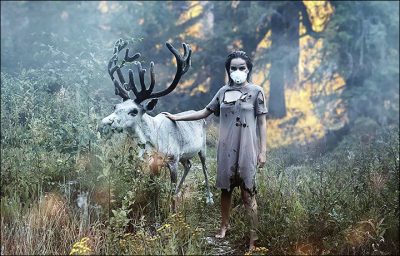
Wild animals are turning to humans as they escape gas-chamber-like woods, with wildfires continuing to rage across almost 3 million hectares.
Even the Arctic is on fire, with smoke blanketing an area larger than the European Union, and a state of emergency declared in several large areas of Siberia.
And a dire warning has been sounded about a major change in climate in Siberia.
Wildfire raging in Boguchany district, Krasnoyarsk region.
Maksim Yakovenko, head of the Russian Federal Service on Hydrometeorology and Environmental Monitoring said:
‘The key issue was forest firefighting, so I would like to say that the situation will be worsening each year because (of) climate change.
Temperatures in some Siberian regions had already exceeded average levels by 8 to 10 degrees Centigrade, he said.
‘It means that in the future we will be facing lasting heatwaves, drying soils, and so the temperatures will be rising, not exponentially, but at a significant pace, higher than on average across the world.
‘That is why, the climatic situation will deteriorate (in Siberia).’
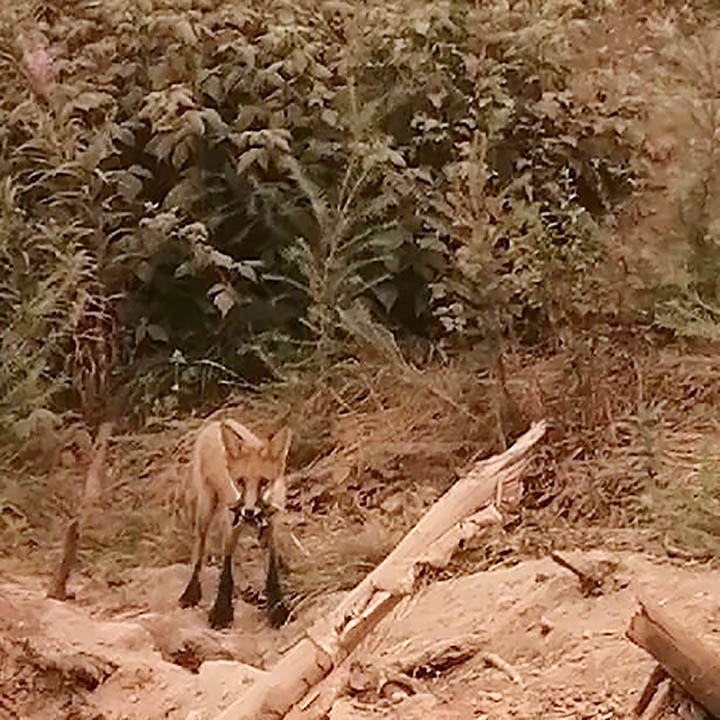
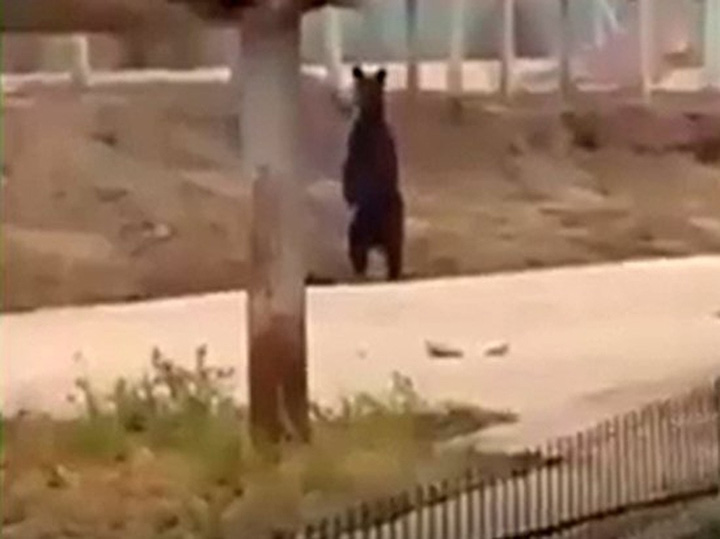
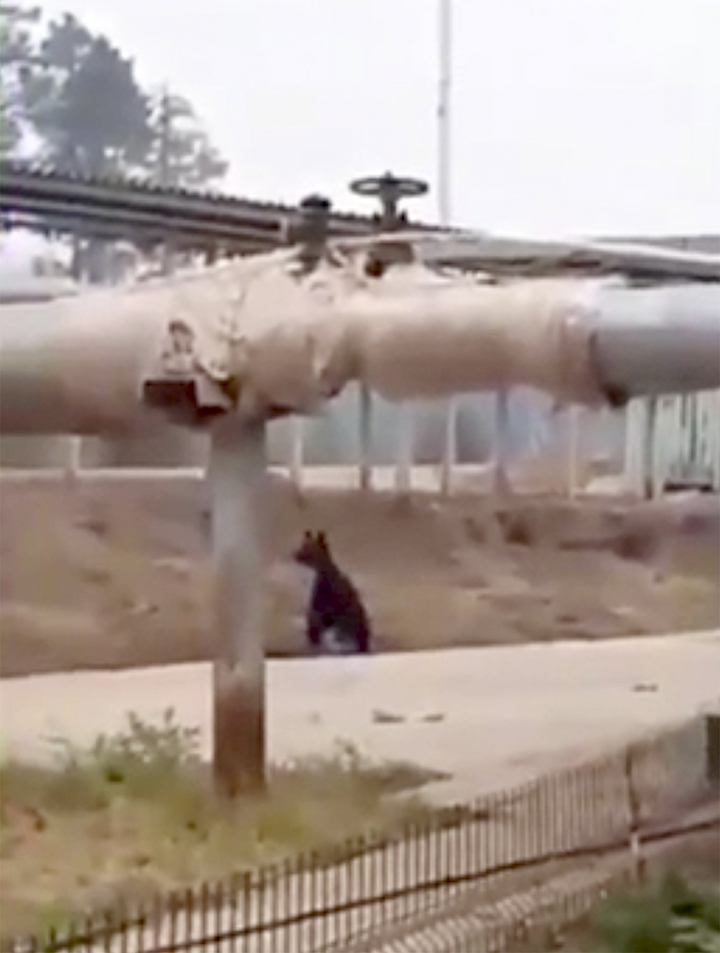
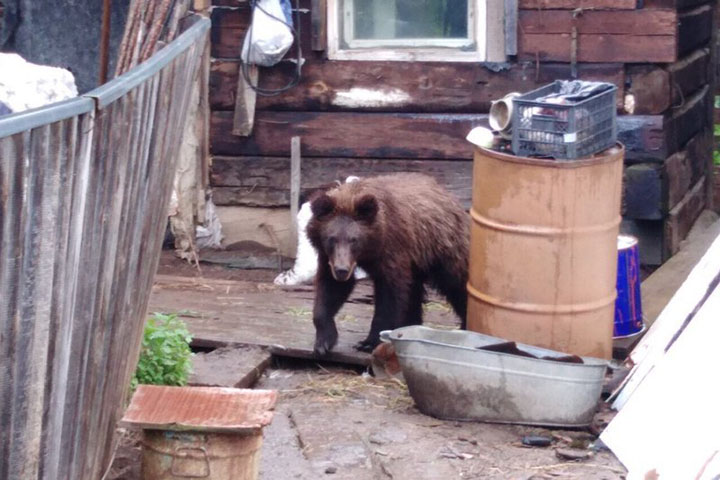
Fox and bears that came to people to seek help. But the one, who came to the village of Zamzor, Irkutsk region (bottom), turned to be agressive and was shot.
While President Putin ordered Ministry of Defence to get army involved in extinguishing wildfires, there is no system in place to help wild animals.
All they can do is to flee and seek food elsewhere, with local residents trying to do all they can to help.
But they can also pose a threat to humans.
‘A small brown bear walked out of woods last night.
‘It was all skin and bones, with visible traces of burns and so exhausted that it wasn’t scared of people’, said resident of Angarsk Maya Fleishter.
‘My husband who is now in the Ust-Kut taiga gave the bear cookies and water.’
‘The bear growled at first, but then gulped water and took cookies, making all the watching – and who themselves spent last week suffocating from fumes – cry.’
Bear cub spotted near the town of Ust-Kut.
Panicking animals are reported to be seen east and west of Lake Baikal, including on the territory of vast Krasnoyarsk region and in Russia’s coldest region Yakutia which is also on fire.
A family of foxes, with the mother managing to take her young cubs out of the woods and moving them to live right next to a road, in full view of shift workers at Ichedinsky oil mine, said one report.
‘Don’t try to stand in their way’, warned Moscow biologist Sergey Naidenko of Severtsov Institute of Ecology and Evolution.
‘Fleeing wild animals won’t seek conflict with humans, all you need to do if one of more of them got into your gated territory is to open doors and not scare them.
‘Much as we would all like to feed the wild animals I would still warn against doing it.
‘You might be like once feeding an exhausted bear, but there is never a guarantee that it won’t attack you next second’, Naidenko said.
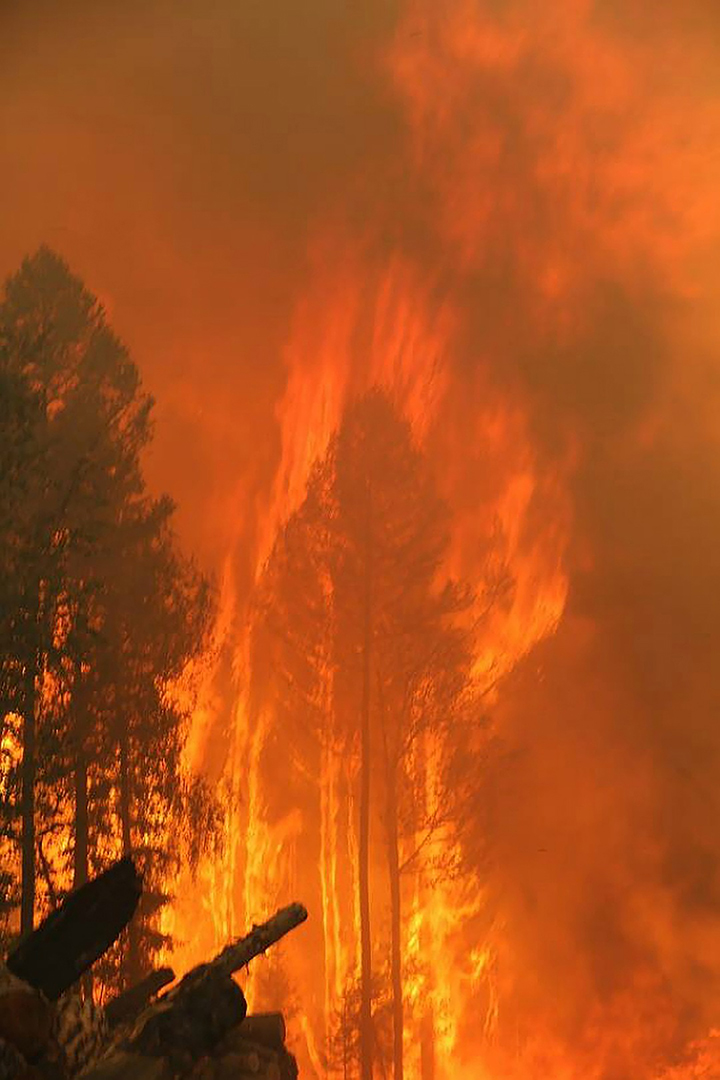
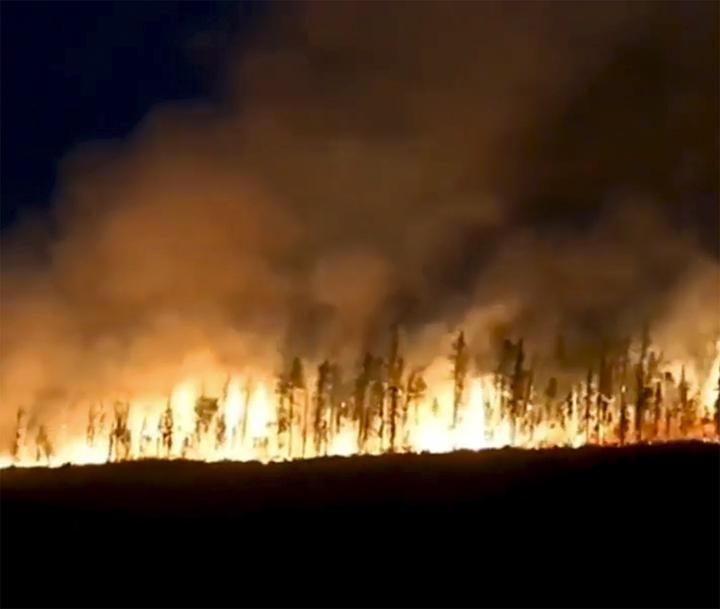
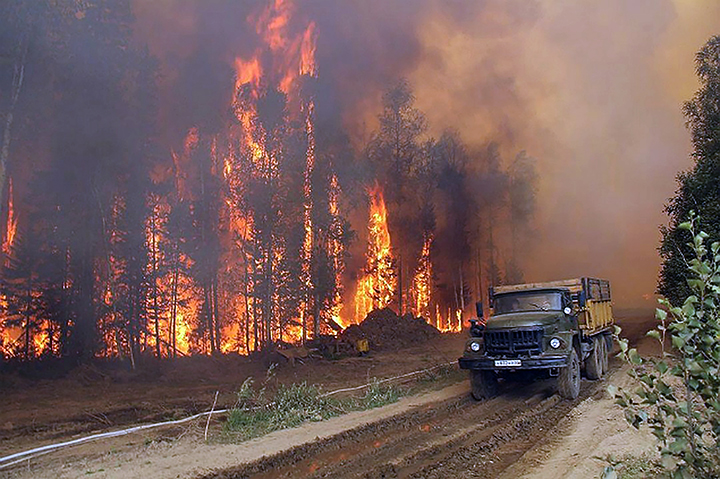
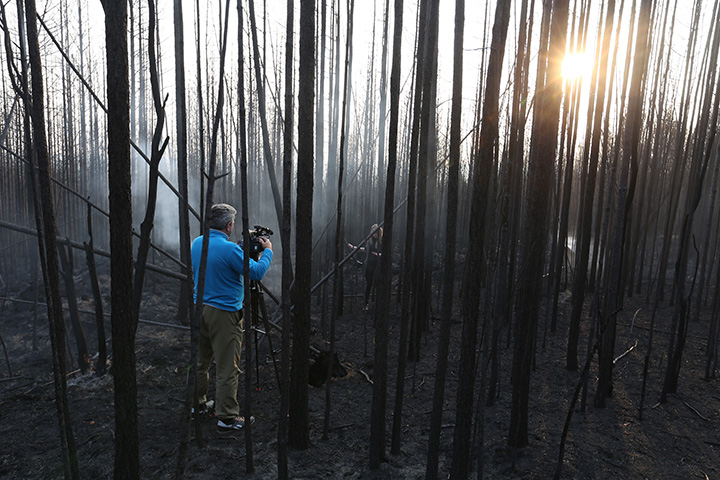
‘The situation will be worsening each year because (of) climate change.’
Several days ago in Yakutia young brown bears invaded one the region’s remote villages, killing several dogs chained in yards.
Most of large animals like bears, deers, boars and wolves should be able to save themselves and run away from fire, the Russian biologist believes.
Mothers with young cubs – at this time of year this would include lynxes, foxes and hares – would be affected the most as there is little they can do to move their little ones.
Slow moving hedgehogs are ‘doomed’, said Naidenko, as well as most of smaller animals like mice whose strategy to avoid fire is to hide in holes.
‘For various types of mice everything will depend on how deep are their holes, and on how quick will the fire be above them. If they survive fire, next struggle would be to find food on burnt soil’, Naidenko explained.
A zoo park called Lesnaya Skazka from Barnaul offered its space to save at least some wild animals.
‘We can host up to 30 large animals on 7 hectares of our free land’, said zoo director Sergey Pisarev.
‘Yesterday we had visitors from Irkutsk, who said that it was mainly elks and deers seen running out of woods.’
*
Note to readers: please click the share buttons above or below. Forward this article to your email lists. Crosspost on your blog site, internet forums. etc.
Featured image: All they can do is to flee and seek food elsewhere, with local residents trying to do all they can to help. All pictures were taken in Yakutia by photographer Natalia Negnyurova who said she aimed to attract attention to the threat that wildfires

